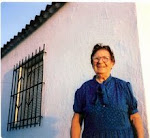Spanish female political prisoners writing from jail during the Franco dictatorship
by Carrasco de Miguel, Berta, Ph.D., Western Michigan University, 2011, 296 pages; AAT 3467822
Abstract (Summary)
This dissertation examines the role of women prisoners during the Spanish Civil war (1936-1939) and the Francoist regime (1939-1975) as represented in different literary genres such as the testimonio (testimonial narrative), autobiography and the fiction novel. In the first chapter, I analyze the concept of womanhood created by Francisco Franco's regime through the person of Pilar Primo de Rivera. In the second chapter I study three texts written right after the dictatorship: Desde la noche y la nieblaby Juana Dona, Las cárceles de Soledad Real compiled by Consuelo García and En el infierno: ser mujer en las cárceles franquistas by Lidia Falcón. In my analyses of these three works, I examine the prison as a place of punishment, as well as an experience that guided these women to develop a political and social awareness. Moreover, I consider these texts as important pieces of contemporary Spanish peninsular literature since they have special characteristics that make them a genre by themselves. The third chapter focuses on the writings of Lola Canales, Alias Lola: las últimas presas políticas de Ventas and Así fue pasando el tiempo , edited and compiled by Manuel Pulido Mendoza. In my analyses of these two works that were written in the twentieth first century, I study the evolution of the genre, and more specifically, how the new generations of writers portray their ancestors' history. The final chapter of the dissertation examines País íntimo , a work that completes the study on women's political and social awareness as seen through the fictional testimonio . Together, these four chapters demonstrate the importance that the experience of being incarcerated had for Spanish women. My analyses also contribute to the study of female Francoist prisons and show how the prisoners changed at the same time that the Regime did. Throughout my dissertation, I highlight how their resistance to the political system made it possible for them to envision a new type of woman, radically different to the feminine ideal imposed by Franco.
| Advisor: | Tasende, Mercedes |
| School: | Western Michigan University |
| School Location: | United States -- Michigan |
| Keyword(s): | Spanish Civil War, Prisoners, Spanish transition, Prison literature, Democracy |
| Source: | DAI-A 72/10, Apr 2012 |
| Source type: | Dissertation |
| Subjects: | Modern literature, Romance literature, Womens studies |
| Publication Number: | AAT 3467822 |
| ISBN: | 9781124811185 |
| Document URL: | http://proquest.umi.com/pqdlink?did=2429846751&Fmt=7&clientI d=79356&RQT=309&VName=PQD |
| ProQuest document ID: | 2429846751 |







No comments:
Post a Comment